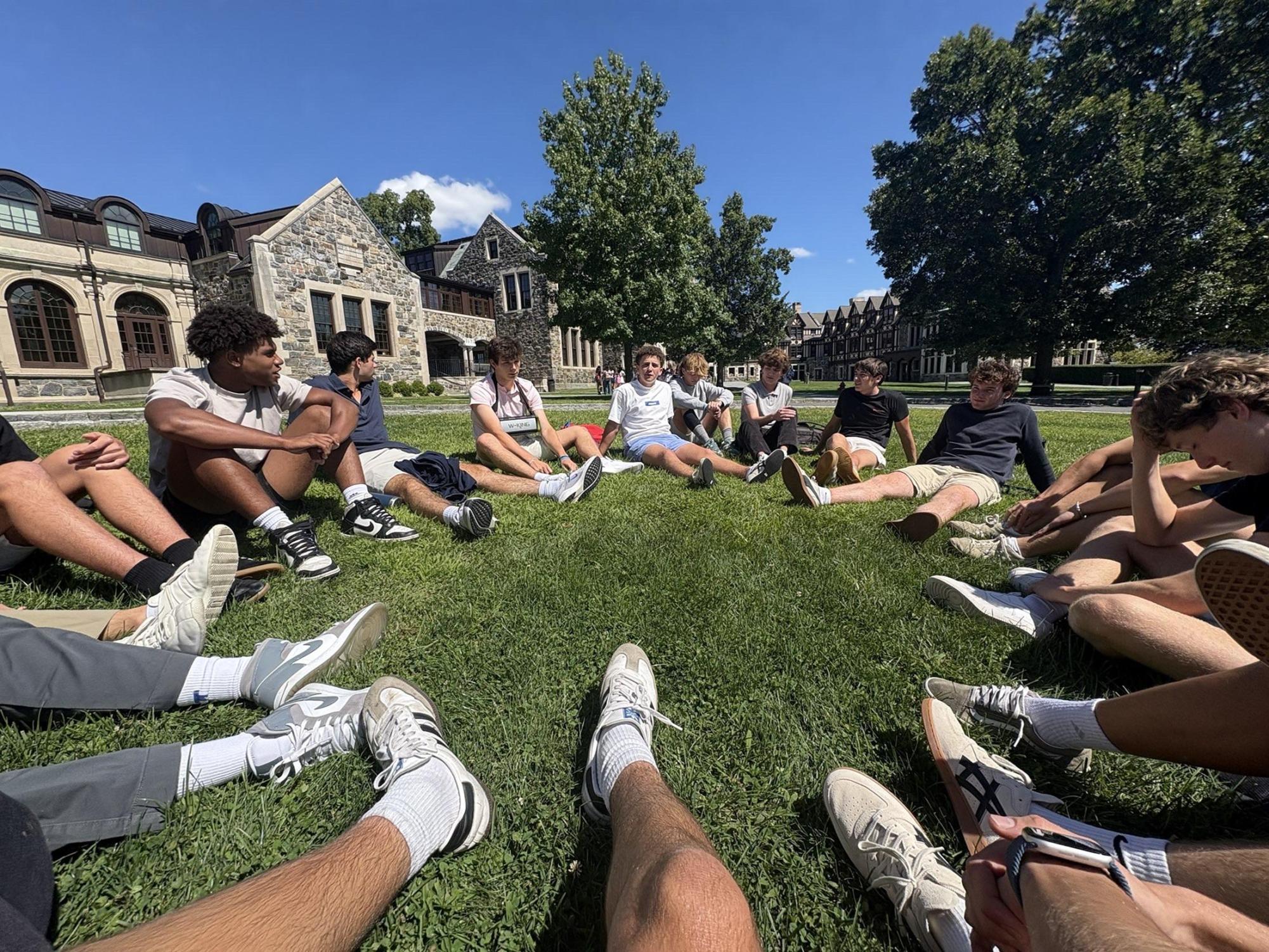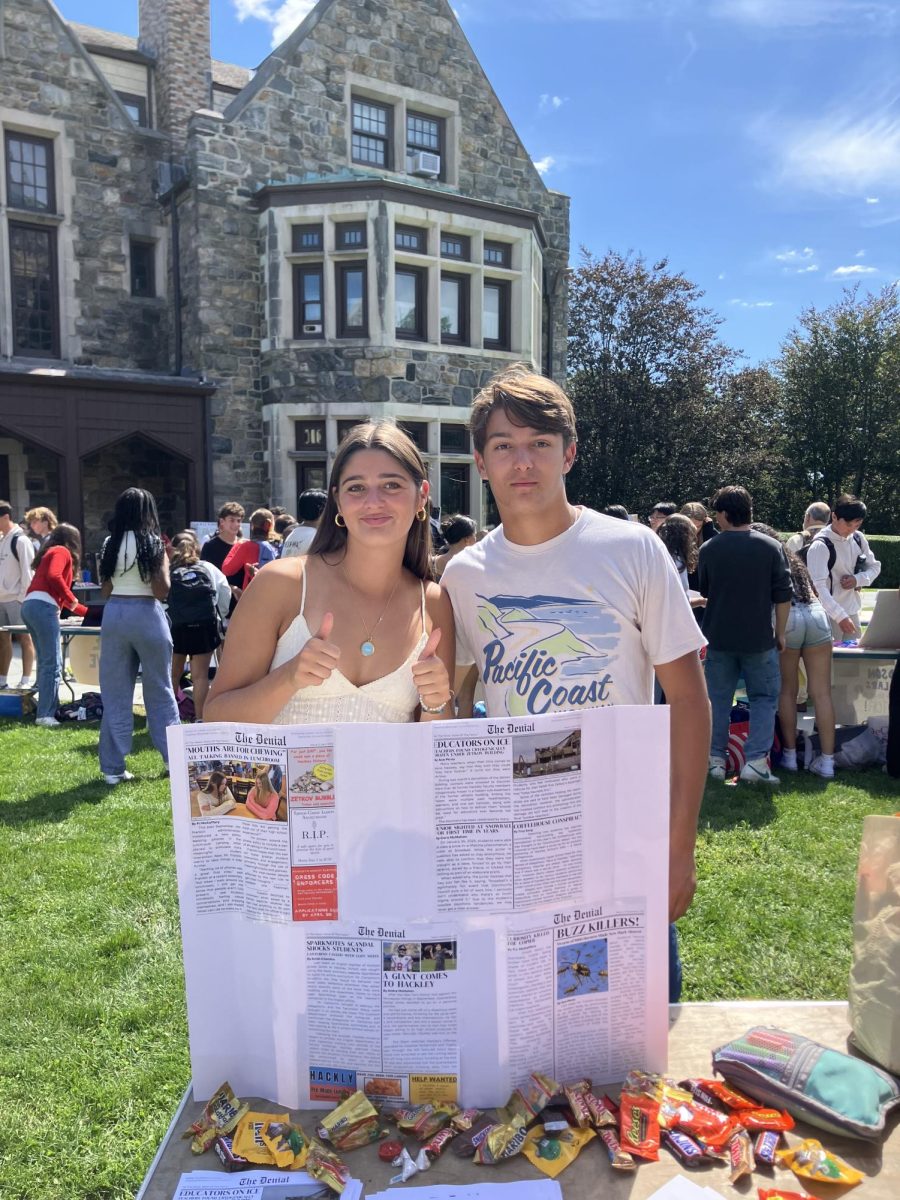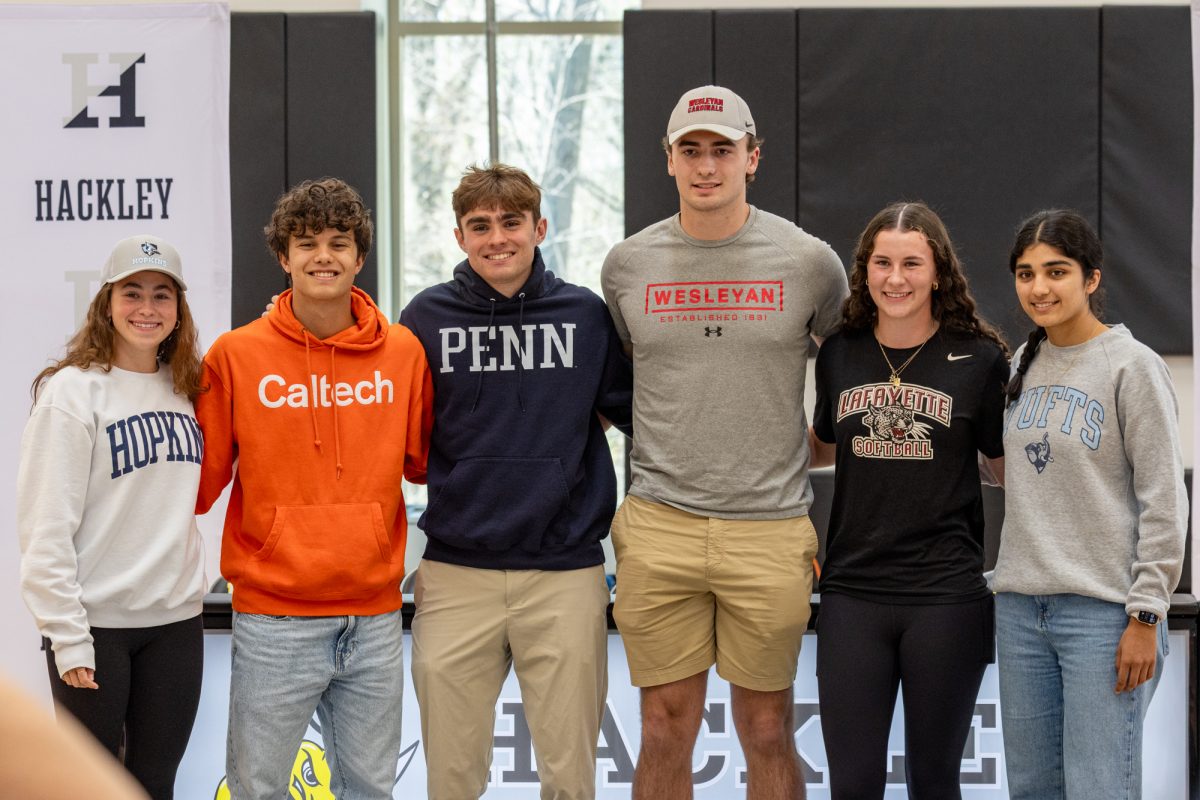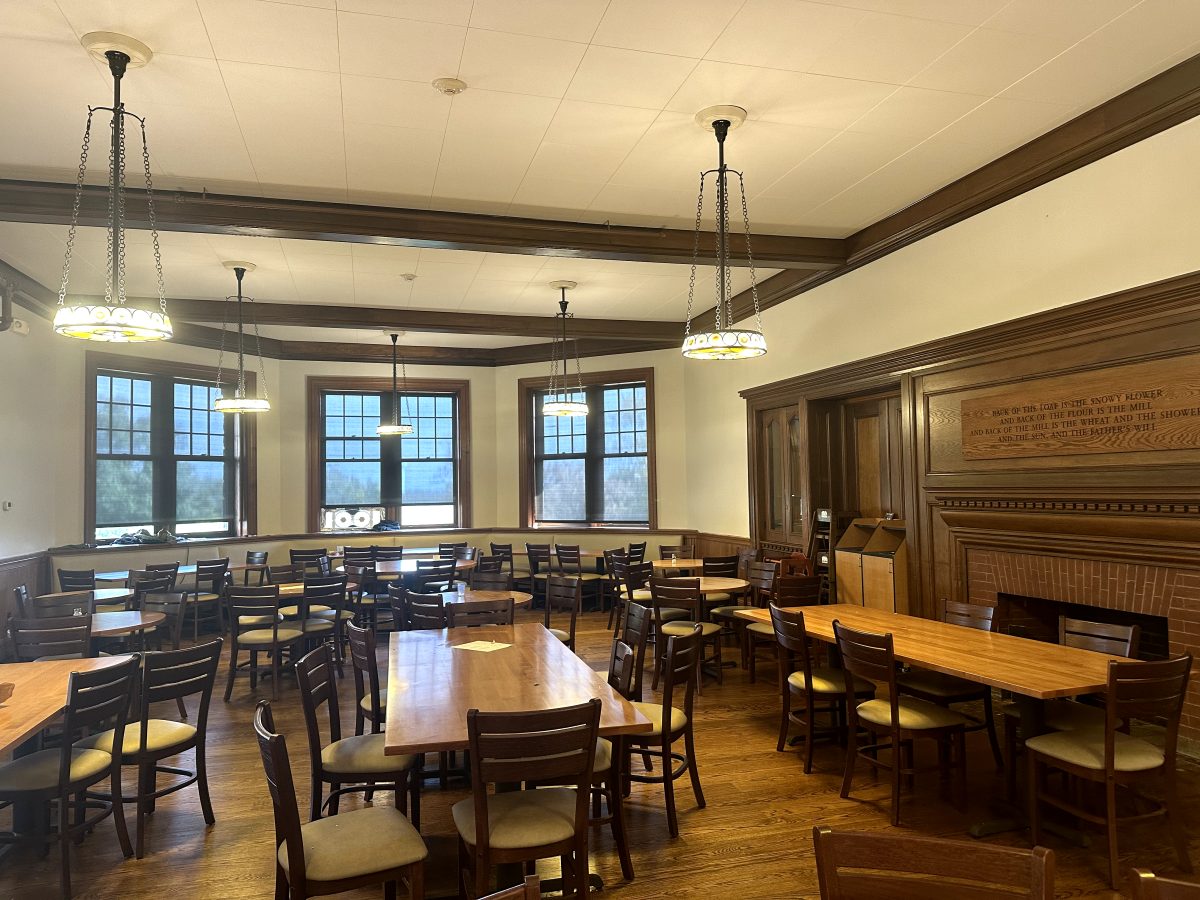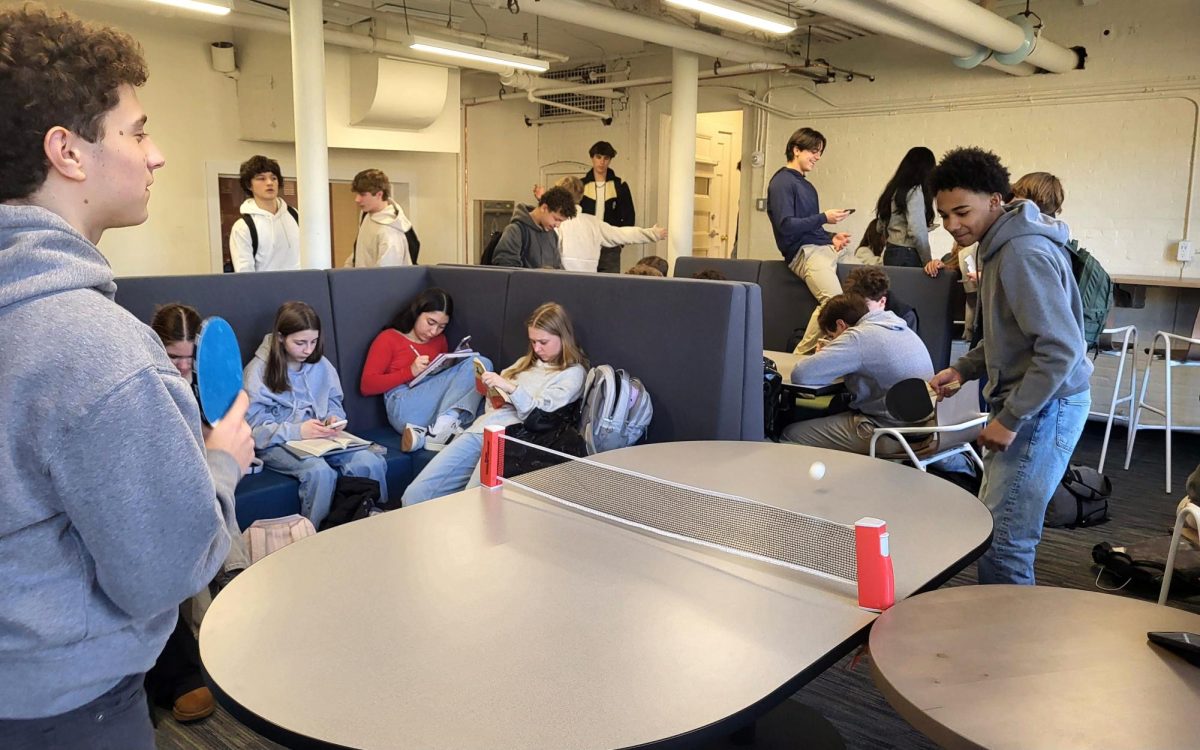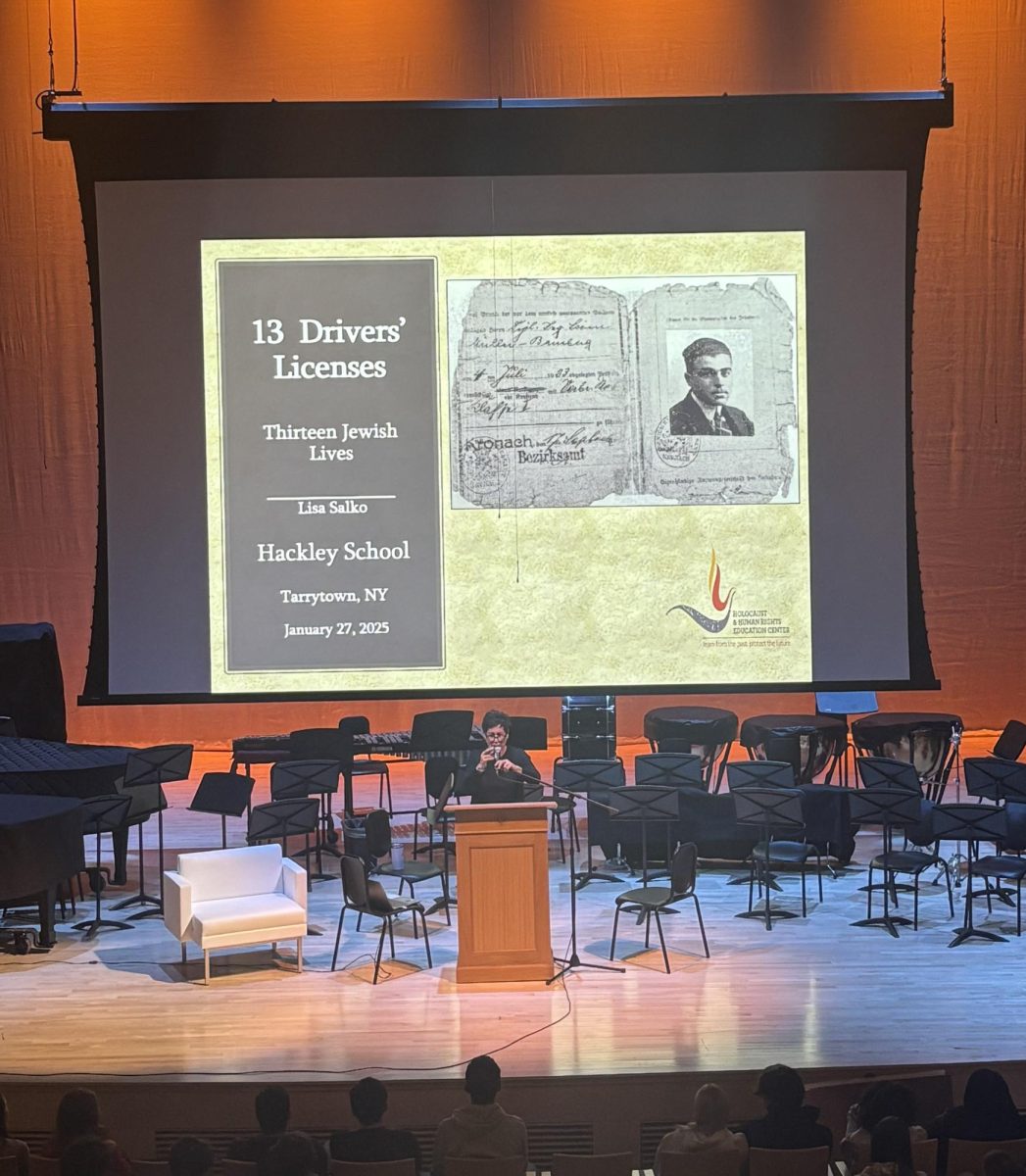The new school year has already brought a culture shift to the Hackley community. The new total “bell to bell” phone ban changes a long-standing privilege that students in the Upper School held. This rule reflects a continuation of Head of School Charles Franklin’s efforts to encourage students to engage more with one another across campus.
The news came as a surprise, even to Upper School President Ben Iaderosa.
“I heard about it just like everyone else, which is a bit weird considering I am supposed to be working with the school and the students to represent both voices,” he said.
This lack of knowledge made it unclear to students why the rule was created and what its purpose is during the opening days of school.
“We want kids throughout their day here to engage with as many community members as possible,” Mr. Franklin said. “Not just your best friends, but also, faculty, or the kid you don’t know, walking up to the Johnson Center next to you”.
While students may feel it is an imposition to be told not to have their phones out for seven hours a day, Mr. Franklin said that what you will remember and cherish from high school is the time spent with others, not the time spent looking down at a screen. The phone rule itself is really a response to this, as there have been relatively few problems with phone use in the classroom.
This rule fits in with his “More, Together” convocation speech. In the speech, he says we are “better” and “stronger” together. However, this requires students to be open to “connection”.
Upper School Director, Andy King, echoed Mr. Franklin’s sentiment. He pointed to recent evidence from First Friday, showing that a change is working.
“After we were dismissed from Diller Hall, sophomores were having conversations with each other. A year ago, they would have been on their phones, and now students who have never hung out before are talking,” King said.
This stricter stance follows last year’s policy, which encouraged students not to use phones in communal spaces, but wasn’t fully clear. Both Mr. Franklin and Mr. King described the policy as only partially successful.
“It wasn’t a success,” Mr. King said, “The only direction for this year was to be more strict.”
The consequences have been made strict and clear. The first infraction earns multiple lunch detentions, and from there comes the potential to miss sports practices or serve Saturday detentions.
“If the first infraction is a lot, then people won’t do it again,” said Mr. King.
Mr. Franklin added that a success would be if “we get to a random week in April and no phones are confiscated. It is not a success if 25 phones are still being taken.”
The phone ban conforms to a growing national trend. According to a Washington Post Article from December 2024, schools in Virginia that adopted phone bans saw “less phone use in the classroom and higher engagement,” as well as “fewer fights and less drama from social media.”
A recent Houston Chronicle Piece highlighted the stress the new rules have left on some students. “Children are used to communicating with their parents throughout the day–that will change, and there will be some anxieties around that,” said Jessica Rohr, a clinical psychologist at Houston Methodist.
Hackley students are feeling these same anxieties and frustrations as the year starts.
Senior Dean Melissa Stanek said, “Most complaints fall into two categories.” Either students “miss the convenience of being able to check the time, schedule, or communicate easily,” or seniors, who are about to go off into the world on their own, are frustrated with “some of their independence being taken away.”
For some of the younger students, the rules have had a more measured impact. Freshman Josie Morcos said, “It has been annoying not being able to listen to music during frees. However, it hasn’t been that big of a difference from middle school, because we weren’t really able to use our phones that much last year.”
Still, she said that for many of these freshmen, their increase in free time has just given them “more opportunities where we would want to use our phones.”
But Mr. Franklin also noted that some students have said that “it feels nice to not have the pressure of having to check your phone constantly.”
Mrs. Stanek added that the policy is also a wellness measure, trying to get students to have better relationships with screens and social media.
Ben brought up the fact that students can do “basically anything [they] want on a phone on a MacBook, but students with ‘school-issued Chromebooks’ can’t. Is it fair for Hackley to make ‘texting and social media exclusive to those who can afford their own Apple laptop, compared to more affordable options?”
“Overall, I feel as though this ban can help a lot of students interact and strengthen us as a community, but more needs to be done to keep students in the conversation as they claim they want us to be leaders,” said Ben.


